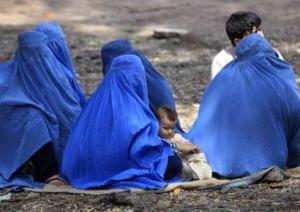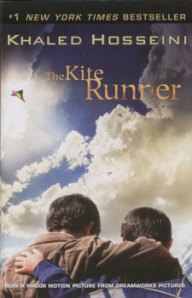 If Khaled Hosseini’s “The Kite Runner” blew me away, his second novel “A Thousand Splendid Suns,” devastated me. It left me reeling, angry and weeping while reading it and yes, long after finishing it. Hosseini has definitely outdone himself in this one.
If Khaled Hosseini’s “The Kite Runner” blew me away, his second novel “A Thousand Splendid Suns,” devastated me. It left me reeling, angry and weeping while reading it and yes, long after finishing it. Hosseini has definitely outdone himself in this one.
I’m afraid that this entry is more emotional and heartfelt than my thoughts/reflections on “The Kite Runner,” as I cannot help but be affected for the novel delves into the lives of women and their life struggles. Anything related to women’s plight is something I am passionate about.
The story focuses on the tumultuous lives of two women and how their lives become intertwined. The setting is still Afghanistan and takes place in the last thirty-three years of the country’s war-torn and violent history. The novel is divided in four parts: the first on Mariam, the second on Laila, the third switches back and forth to Mariam and Laila with each chapter, and the fourth and last ends with Laila. Hosseini has woven a tapestry of a masterpiece for he has depicted the lives of the women, who were born in different circumstances but have the same problems, in a haunting, powerful and realistic manner.
Why? It is so… because the stories of Mariam and Laila, though fictional, reflect the lives of thousands of Afghani women. No. Let me correct that. I would say, the novel reflects the lives of women all over the world, who have suffered on the basis of their gender. Utterly striking in the book is how Afghani women were discriminated against because of their gender – from the practice of forced or arranged marriages with child brides not later than 16 years old; violence against women; absence of social, political and legal mechanisms for protection of women; restricted access to education, health care facilities and employment; the importance of a son compared to a daughter in the family, and so on. Such views and practices are deeply rooted in the old Afghani tradition and the traditional patriarchal gender order. Nana’s words (Mariam’s mother) would resonate throughout, “Like a compass needle that points north, a man’s accusing finger always finds a woman. Always.”
Another issue that the book tackles is violence. Violence, in the novel, takes on two forms. On the personal or the intimate level is the violence against women and on the communal or national level is the war and violence experienced throughout the country. Violence against women was manifested in several levels – physical, emotional/mental/psychological, verbal, economic and sexual. It’s all there. Name it, you got it. On the other hand, war or violence experienced by Afghanistan as a nation and as a people also zeroes in on its devastating effects on the most affected population – children, elderly and the women. Yes! Even war has a gender issue. (Alright, enough of my ranting about gender and women issues; it’s just that one of my advocacies is about stopping violence against women and my research involves domestic violence and abused women. I’m going back to the book now, :D)
“A Thousand Splendid Suns” is a poignant tale of love in different forms, be it romantic, familial, love for country and for God. It also showcases how remarkable the human spirit, through Mariam and Laila, can become. How despite all the tribulations and odds, these women survived, endured and carried on. It is now included in my favorites list; truly unforgettable and moving!


